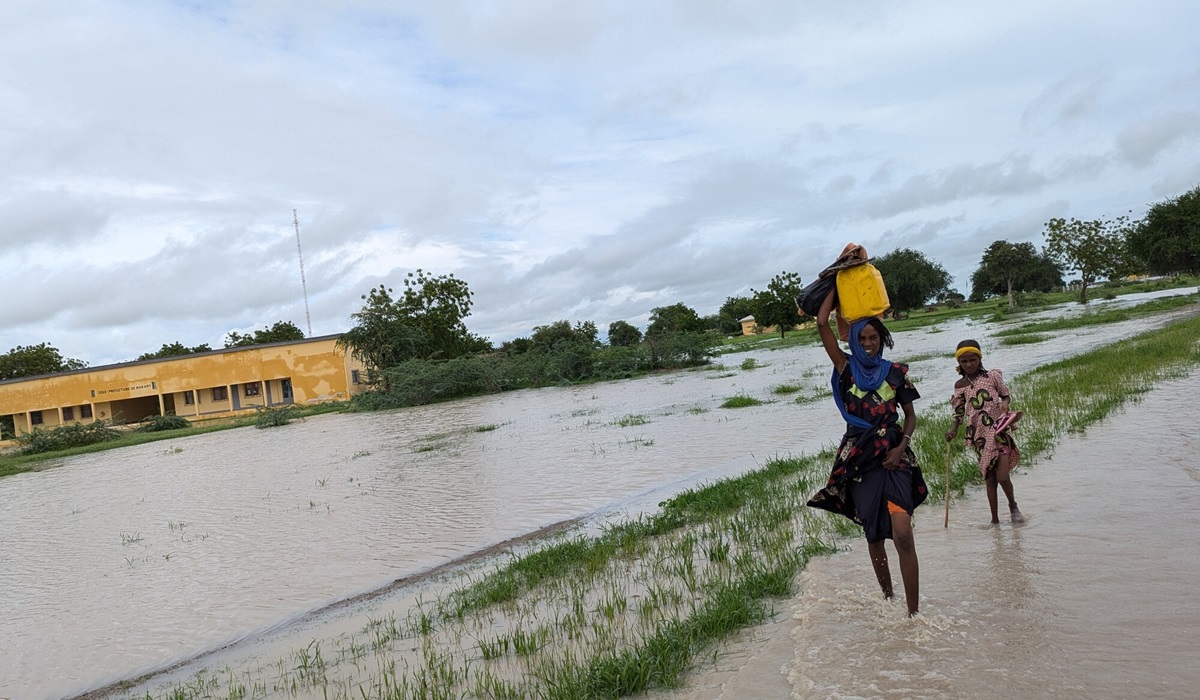Image Credit, NRC
The Sahel and Lake Chad region is facing an escalating catastrophe, with severe floods exacerbating an already devastating humanitarian crisis. In northeast Nigeria alone, at least 50,000 people have been displaced in recent days, adding to the more than 239,000 affected since the weekend. Across countries like Cameroon, Mali, and Niger, vulnerable populations already crippled by conflict, displacement, and climate change are now contending with floodwaters that threaten their very existence. The Norwegian Refugee Council has issued a desperate plea for international aid, yet the response remains gravely inadequate.
These floods are not merely an environmental event—they are a death sentence for communities that have already been pushed to the edge. Farmlands, the lifeblood of these regions, lie in ruin, swept away by relentless torrents. Crops that would have sustained entire villages through the year are gone. Food insecurity, already at critical levels, will now deepen. In Mali, families that depend on subsistence farming and pastoralism have lost everything. The lean season has brought these communities to the brink of famine, and without immediate intervention, there is no safety net left to catch them.
Displacement, once a byproduct of conflict, is now being driven by natural disasters of increasing ferocity. In Nigeria’s Borno State, families have been forced to flee with nothing but the clothes on their backs, their homes swallowed by water. Modu, a resident of Maiduguri, described the situation with bleak clarity: “We are all currently watching how our houses are being flooded, and there is nothing we can do about it.” His words reflect a bitter truth—these communities have been abandoned by the world’s conscience.
Schools, too, have fallen victim to this disaster. Many have been destroyed, repurposed as shelters for those who have nowhere else to go. The children of this region, already denied stability and peace, are now losing their right to education. The long-term consequences are unfathomable, as generations of young people face a future without the basic tools to rebuild their lives.
The international response has been appallingly insufficient. As the 2024 Humanitarian Response Plan for the Sahel stands at just 25 percent funded, aid organizations on the ground are being stretched to their breaking point. Local actors are doing what they can with limited resources, but it is not enough. The global community cannot continue to ignore the plight of these people. These floods are a manifestation of climate change that is disproportionately punishing the poorest and most fragile societies. And yet, the wealthy nations that bear the greatest responsibility for this crisis remain silent.
The situation is a profound indictment of global indifference. We are witnessing the unraveling of entire communities, and if the international community does not act now, these vulnerable populations will face even greater suffering. This catastrophe, driven by a warming planet and compounded by human conflict, is not going to subside. It will continue to claim lives, to destroy livelihoods, to rob people of their futures. The time for action is now, and the consequences of inaction will be devastating. The world must recognize the urgency of this crisis and respond with the resources and commitment that it demands. Lives are at stake, and our failure to intervene will be a stain on our collective humanity.









